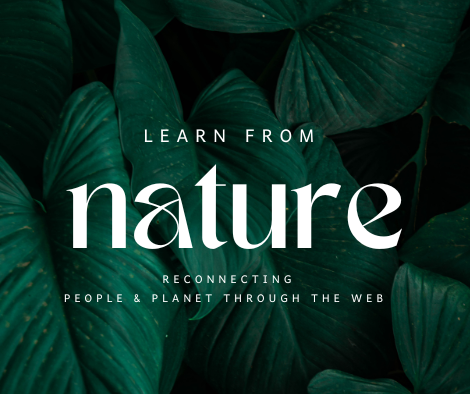Now that Green Teacher is a registered charity in Canada, we have big plans!
HenrIcus – the creator of this LearnFromNature blog – as the Australian Region Editor for Green Teacher . Green Teacher is also partner of NAEE where Henricus is an executive
Next steps
We’re rich in resources and relationships. We also have five avenues — magazine, books, webinars, podcasts, and professional development — for supporting educators. With all of this in tow, here’s where we’re headed next:
1. Partnerships — Better positioning ourselves as a go-to collaborator for high-impact partnerships
2. Cutting-edge content — Increasing our capacity for creating resources in these key areas:
- climate change education, specifically climate solutions, the energy transition, and career opportunities in a decarbonized economy
- pollinator health, including wild native pollinators
- invasive species
- ocean and watershed health
3. Accessibility — Making our resources more widely available to underserved Indigenous, remote, francophone, and Spanish communities
As a registered charity, we now have the capacity to seek significantly more funding to help us reach our goals.
To see how we got to this exciting point, let’s wind the clock back to see where we’ve been and how we’ve adapted to changing needs over time.
Our Story
Origins
In 1986 in Wales, Damian Randle launched Green Teacher magazine as a place where youth educators — both inside and outside schools — could find innovative articles and activities for environmental learning.
Expanding across the pond
When it became clear that the content of the magazine was too UK-focused to sustain the interests of North American educators, Tim Grant and Gail Littlejohn launched a North American edition in 1991. They recruited regional editors from most Canadian provinces/territories and US states and encouraged magazine contributions from every corner of North America. To provide educators with resources on emerging topics and those requiring greater focus, some issues were themed (e.g., Indigenous perspectives, marine education, school gardening, climate change, invasive species, and international development). While the UK edition ceased publication in 1995, the number of subscribers to the North American edition grew steadily.
Books
Building on the success of themed issues, we began to publish books in 2001. Since then, a total of 10 books in English and one in French have been published, and over 60,000 copies have been sold. Our two newest books, both on the timely theme of climate change education, were published in 2017 and 2018.
Digital
When book and magazine publishing fell into a steep decline in 2012, it was time for a reinvention. Green Teacher went digital, raising the value of a subscription considerably. Today, subscribers continue to receive four annual issues of the magazine, while having access to over 120 webinar recordings and over 500 past articles and activities from the magazine, all easily searchable.
Multicultural
In 2006, translators from around the world began volunteering to translate our English-language articles into French and Spanish. Thanks to the contributions of over 150 translators, hundreds of translations are now posted on our French and Spanish companion websites. As with the English content, all the French and Spanish translations have been catalogued by topic and age level. In 2020, we started offering inexpensive subscriptions to francophone and Spanish-speaking educators and educational organizations.
Podcasts
Recognizing that more and more people have been turning to podcasts for enrichment and insights, we launched our own podcast, Talking with Green Teachers, in Summer 2021. Each episode features a discussion with one or more innovators from the enviro. ed. field interspersed with a narrative thread. In its first year, the show has been heard by thousands of listeners across six continents and over 55 countries.
Professional development and consulting
To serve the unique needs of educators, schools, school districts, and faculties of education, we made our first venture into professional development and consulting in 2021, beginning with a four-part workshop presented in collaboration with Natural Curiosity.
Full information – read the whole article here


